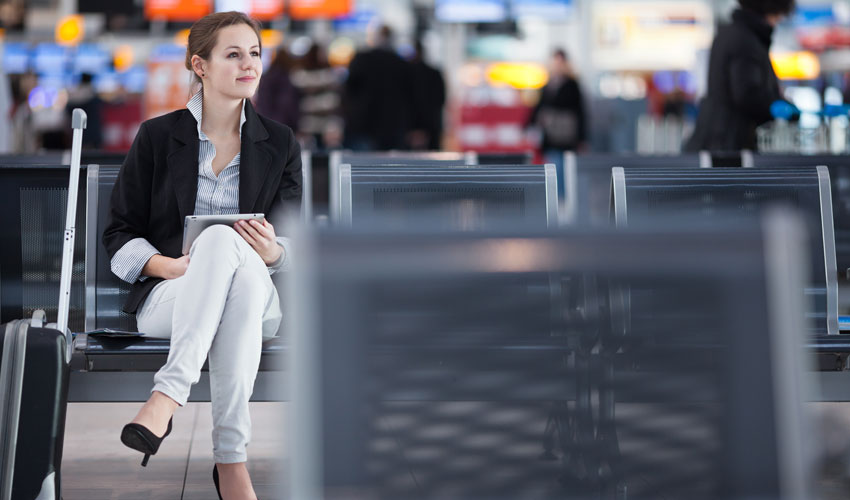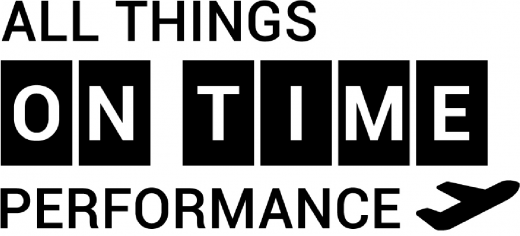Airlines face common challenges with an operating environment that is growing more complex. At the same time, technological advances, particularly AI, offer ever greater potential in support of safe and efficient operations. Navigating this complex operating environment while embracing aviation innovation to enhance customer experiences and operations is essential.
Celebrating Aviation Innovation at the FTE Global Pioneer Awards 2024
The FTE Global Pioneer Awards 2024 have just revealed their shortlists, showcasing the 20 most innovative airlines and airports worldwide. These prestigious awards, split between the FTE Global Airline Pioneer and Airport Operators Pioneer categories, celebrate those driving transformation in the air travel industry, with a focus on improving customer experiences and pushing the boundaries of innovation.
International Airlines Group (IAG) led the pack with its comprehensive transformation journey, focusing on automation, robotics, AI, and sustainability. Turkish Airlines dazzled judges with its digital passenger experience strategy with biometrics and a custom AI solution for turnaround management.
Qatar Airways stood out with its AI flight attendant “Sama 2.0” and a virtual travel experience platform “QVerse.” Lufthansa took the crown for innovative entertainment with the use of Meta Quest 3 Mixed Reality headsets in their new Allegris Business Class. Additional innovative airlines like Alaska Airlines, Southwest Airlines, Delta Air Lines, United Airlines, Singapore Airlines, and Emirates showed some exciting initiatives ranging from AI-powered virtual assistants and personalized content to robotics, sustainability, and innovative entertainment solutions, demonstrating the industry’s commitment to technological progress.
A Global Forum for Aviation’s Future
Also focusing on technology, sustainability, innovation, and business models will be the 2024 World Aviation Festival in Amsterdam, a three-day conference and trade show, taking place from October 8-10, which will feature over 600 speakers and a dedicated sustainability summit.
David Neeleman, CEO of Breeze and Founder of JetBlue, will discuss industry trends and challenges alongside CEOs from KLM, IATA, and Star Alliance. Charu Jain from Alaska Airlines will focus on AI and emerging technologies for guest experiences, while Thomas Rückert from Lufthansa Group will talk about numerous technological advancements in aviation. Other topics include decarbonization strategies, digital sustainability solutions, and global perspectives.
The event will also showcase startups, accelerators, and VCs in a dedicated Start-Up Village. IAG Hangar 51, Lufthansa’s Innovation Hub, Alaska Airlines Up Labs, and Aerospace Xelerated bring forward exciting technology and aviation innovations. The Digital Accessibility Summit will feature Michael Swiatek, Chief Strategy Officer of Abra Group, who will deliver the keynote speech on accessibility in aviation.

A Hub for Aviation Innovation and Teamwork
Effective collaboration among ground management teams is essential for optimizing airport operations. Despite decentralized operations and varying shift schedules, strong leadership and communication can foster cooperation among teams responsible for baggage handling, catering, and other ground services. Also, significantly enhancing team collaboration and efficiency are AI-based software solutions. By providing frontline managers with real-time information and tools, AI can streamline communication, improve decision-making, and optimize resource allocation.
Both regional and major airports face similar challenges, but the scale and specific details may differ. While regional airports may have smaller teams and budgets, they play a crucial role in local economic development. However, AI-based software can benefit both regional and major airports by improving operations, managing resources, and enhancing communication. AI helps airports address challenges like flight cancellations, delays, and staffing shortages, while also improving passenger experience and safety. Overall, strong leadership, adaptability, and effective collaboration are key to optimizing ground support operations in today’s dynamic aviation environment, which is more readily achieved through the help of AI tools.
Unveiling Punctuality Champions
While innovation continues to shape the future of aviation, another critical factor in delivering a seamless travel experience is punctuality. As airlines push the boundaries of technology and service, those leading the way in on-time performance are setting the standard for reliability and customer satisfaction. Let’s take a look at the airlines topping the charts.
- In Latin America, Panama’s Copa Airlines emerged as the most punctual with 90.65%, followed by Aeromexico (86.54%), GOL (85.41%), Avianca (83.19%), and Azul Linhas Aéreas Brasileiras (83.06%).
- North America saw Delta Air Lines claim the top spot with 80.90% on-time performance. United Airlines (78.38%) and Southwest Airlines (78.17%) secured the second and third positions, respectively.
- Moving to Europe, Scandinavian Airlines (SAS) impressed with an on-time arrival rate of 83.53%, taking the lead. Iberia Express (83.43%) and Icelandair (82.35%) followed closely behind.
- In the Asia-Pacific region, Thai AirAsia secured the top position with 78.98% on-time flights. Vietnam Airlines (78.73%) and Singapore Airlines (78.47%) came in second and third, respectively.
- Lastly, Safair dominated the Middle East and Africa category with a remarkable 93.49% on-time performance. Oman Air (89.26%) and Saudia (84.60%) rounded out the top three.
In summary
Despite the ongoing challenges in the aviation industry, technological advancements offer promising solutions. Airlines are leading the way in aviation innovation with applications in automation, biometrics, AI, entertainment, and sustainability, some of which will be showcased at the World Aviation Festival in Amsterdam. Additionally, advancements in airport ground support, driven by strong leadership, effective communication, and AI-powered tools, are showing significant improvements in operational efficiency.
>> Which technological advancement do you think will have the biggest impact on the future of air travel? Let us know in the comments below.




0 comments on “News Wrap-up September 2024: Fostering Aviation Innovation”